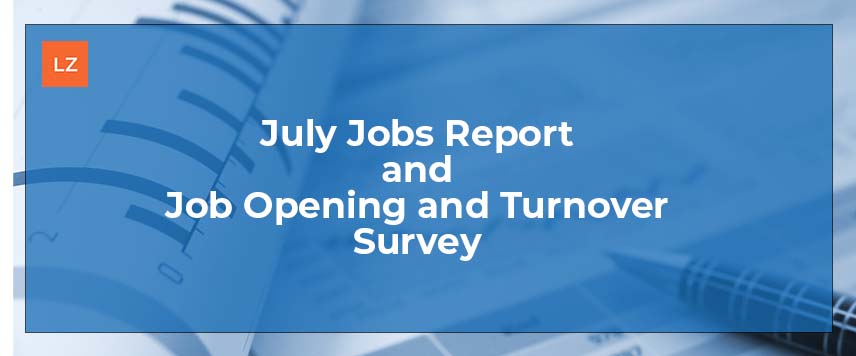The largest generation at work in America today is the millennial generation. At the beginning of 2023, they make up around 35% of the entire workforce. The generation’s reputation, though, has not always been stellar. Millennials have been called everything from “lazy” to “self-obsessed” to “over-educated” to “entitled.” Just ten years ago, Time Magazine’s cover story for May was about how millennials are the “Me, Me, Me” generation, a stereotype that has been pervasive, even if not wholly accurate. However, those that once scoffed at and demeaned the work ethic of millennials are now finding that they desperately need them to either fill open positions in their company, or simply stay in the jobs they currently have. Every recruiter knows how expensive it is to replace a lost employee in this day and age, so learning how to please millennials has become a hot trend.
In today’s job market, it is important to have thorough recruitment and retention strategies, and, with millennials being the bulk of workers in 2023, it is also imperative that these practices take into account the type of employee a millennial is and what drives them when they are in the office.
I Write Recruitment Blogs, Not Tragedies
Who are the millennials? While there are many answers to that question out on the internet, most professionals agree that millennials are the generation that was born between 1980 and 1997. (Yours truly is somewhere in that date range and proud of it. Where, you might ask? I may be proud, but I’m still a lady. Let’s just say that I have a vague recollection of when Bill Clinton was elected president and leave it at that.) This is the generation that came of age with the internet, and now almost all millennials have smartphones and the knowledge of how to use them effectively. There is a reason that the parents and grandparents of millennials will call them up and ask for help with phones, laptops, tablets, etc. All of the “new” technology that they grew up with also feeds into a millennial’s curiosity. Studies have shown that this generation, given their early access to the internet, have become one of the most curious age groups, becoming leaders in innovation and creativity in the time since they entered the job market.
Millennials are also extremely well-connected. It is said that 42% of this generation uses social media while at work, and this continues well into the night with millennials using their smartphones at home for everything from setting up appointments, to looking up recipes, to distracting the kids with a quick episode of Bluey so the dishwasher can be loaded. That leads into one of the other traits that most millennials have, the ability to multitask. Many millennials not only have a standard 8AM-5PM job, but they also perform gig work regularly or have a part-time job. So, the worker you have in the office this afternoon may be delivering your Thai food later! While this can be a valuable skill in a hectic work environment, this one should come with a warning label that says if the millennial employee is not engaged, they can be easily distracted with their smartphone and/or social media.
With everything going on around them, millennials have also been shown to be the most disengaged generation in the workforce today. Statistics from Gallup show that only about three in ten millennial workers are excited and engaged at work. Roughly 55% of millennials are not focused or interested in their work and can be considered as “checked out.” These workers are only compelled to have a job as a necessity, and, unless they are given a reason to stay, they will leave as soon as they see a better opportunity come around.
Semi-Charmed Retention Life
So how are companies supposed to hire and keep millennial workers? That’s a good question since a survey by LinkedIn and CensusWide states that 66% of millennials are considering leaving their current jobs in 2023; they’re called the “job-hopping” generation for a reason (even though Gen X workers show many of the same statistics when it comes to job-hopping).
To make millennial workers happy, there are some very meaningful practices to implement. The first is helping ensure that employees have a flexible schedule to help maintain a good work/life balance. Millennials have made it clear that they will not sacrifice personal time for their job, and they have been known to have a “work hard, play hard” mentality. Since Covid-19, many millennials have hit their stride in a remote work environment, and they are finding themselves, this year, searching for that right hybrid mix of remote versus office employment.
Next, one of the reasons that millennials are enjoying the hybrid workplace is that splitting their time and sometimes coming into the office allows for better collaboration with teammates. This generation, which spends a great deal of time on their social media, loves team-oriented projects and the ability to gather in groups to work. Managers looking to hire or keep millennials are urged to have public collaboration spaces and the tools to make the most of them; things like open cubicle layouts and rooms with white boards, projectors, etc. all will attract social millennials.
Something else that millennials are looking for is career advancement. Being a curious generation (as noted above), millennial workers are always looking to develop their employable skills, hoping that this will lead to upward movement in the ranks of the company. If this is already a part of the business structure, be sure to use it in the recruiting process. Research shows that 60% of millennials would take a job with a strong history of professional development over one with regular pay increases. So, not only will investing in career advancement opportunities bring in more qualified millennial candidates, but they will also stay longer to make the most of the education a business has to offer. For more information about this, be sure to check out our blog about “Career Pathing” (March 29, 2023).
Transparency and authenticity are also extremely important for millennial workers. They tend to gravitate towards companies that are straightforward, open, and honest with both their external marketing and their internal affairs. Avoid using corporate jargon in the interview and also be sure to leave it out of any recruitment strategies. Along with that, ensure that any promises made during the interview are fulfilled. Millennials will leave an interview or a company if they feel they are being misled or played for a fool.
Finally, millennials, and the Gen Z workers following them, want to feel as if their company is working on constantly improving their diversity, equity, and inclusion measures. For more on this, please see our blog about DEI (April 12, 2023), but it is worth repeating over and over again, because these two generations are continuing to press this issue. Not only should the business have diverse, equitable, and inclusive policies, but these policies need to be reflected in all recruitment and retention materials.
Party Rock Conclusion
One of the best parts of setting up strategies to pull in millennials is that Gen Z workers are showing many of the same attributes, so these practices can be used to attract those employees as well. By implementing the tips from above, a business should be able to attract high quality candidates from every generation, but especially from the millennial subset. Remember that engagement is going to be key to success in this situation. Giving millennials more freedom, developing their skills, and being upfront with them will ensure that your funnel is full of quality millennial candidates.
One last thing to note is that millennials make amazing brand ambassadors. As stated earlier, millennials have a slight obsession to their social media. Therefore, employers that have an engaged millennial staff will find that that staff is more than willing to make positive posts about a company on social media. Positive employer branding, especially if that brand is highlighted by happy employees, can ensure that a company on the rise continues to go even farther and shine even brighter.
____________________________________________________________________________
Meaghan Goldberg covers recruitment and digital marketing for Lionzone. A Patterson, GA native, after graduating from both Valdosta State University and Middle Tennessee State University, Meaghan joined Lionzone in 2018 as a digital recruitment strategist before becoming the social media manager.
Resources:
https://blog.hiringthing.com/five-hr-trends-to-know-for-2023
https://www.gallup.com/workplace/231587/millennials-job-hopping-generation.aspx
https://haiilo.com/blog/millennials-in-the-workplace-11-ways-to-attract-and-keep-them/




